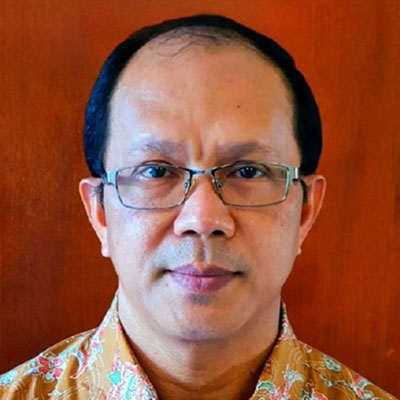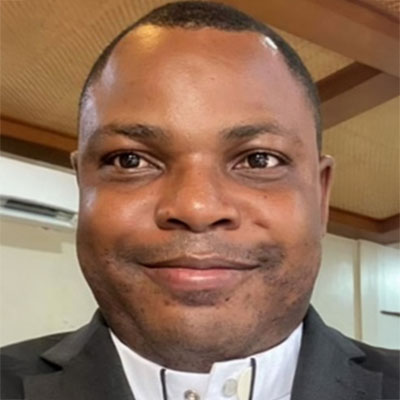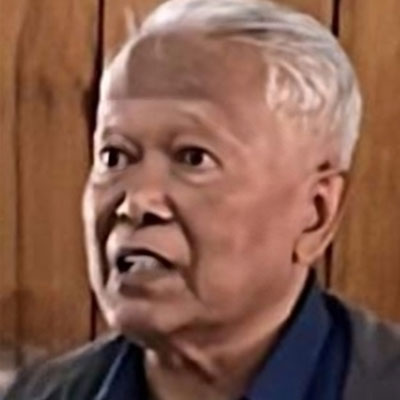 By Jos Das, cicm
By Jos Das, cicm
Letter received at CTV-Mbudi (Kinshasa)
Dear Sons,
It has been 150 years, to the day, that I have left Mongolia to which the Lord had sent me to proclaim the Good News of His Son. In my humble opinion, he called me to his house too early, for the work I had begun under the inspiration of the Spirit was barely born. On that day, the Congregation was like a child who was only five years old. Now, as I am in the house of the Father, I have another look that of God, I have changed my mind. I now see much clearer. I see that this work was not mine but that of the Lord, and what he had begun, he could not let it die. This is what I would like to tell you: The Congregation of the Immaculate Heart of Mary is the work of God to which he has called us to collaborate, all of you and me. Become imbued with this truth, and then you will be able to live your mission, the mission of God, with confidence, for it is in good hands, those of God.
Now, as I splay the clouds and look down the world from heaven, I see you at work in four continents. I’m really surprised. The day I left the earth, in the last hours of my life there, I thought it was over. I was worried, even anxious. I thought, “I worked in vain.” Why these negative thoughts? Because I considered the foundation to be my work, but it was God’s work. And it still is. Hence this development. As Saint Paul says, we sow, but it is God who makes it grow. Many confreres have joined me here at our Father’s house, more than 2000 of them. We are happy together; we are pleased to be here. We do not forget you, but we pray for all of you.
Yes, I repeat, I am amazed and at the same time delighted to see how this small plant in the beginning grew and became a big tree. The image has changed, the color has changed. My first companions were all Belgians and Dutch, and it was like that for many years. But our life, work, joy, and endurance inspired and attracted young people from the countries where we were at work. Today, the Scheutists family, the CICM, counts among its members confreres from Africa, Asia, the two Americas, and Europe. It has become like a vast field of flowers, of different colors and beauties, a field much richer and less monotonous than when it was at the beginning. When I started this work, I could not imagine such a development, such growth. Let us thank God, for he is good.
I know that it is not easy to live with these differences of cultures, mentalities, and ages. I myself experienced it when I arrived in Inner Mongolia, China. I suffered to learn the language, a very difficult language, and at my age… I must humbly confess that my knowledge was very rudimentary. But I made an effort and people appreciated it. They loved me, and they wanted me to stay with them. That’s why they didn’t want my remains to be transferred to Scheut, Belgium. A few confreres had to do it in secret. And understanding people’s mentality, getting into their mentality, is still much more difficult than learning a language. A missionary in another country, among other people, remains a foreigner, even after many years of committed presence. This is an aspect of his poverty that he is invited to accept humbly.
I am proud to see you at work. Wherever you arrive, the first thing you do is to learn the language of the people and go through a period of integration. Language is the gateway. The concern is to be close to the people, to become brothers. From the sky, with my confreres around me, I see this one, very gifted for languages, he feels at ease; another one who struggles, yet moves forward, makes progress, and above all, loves his people and people love him too. That is what is important, that is the Gospel. I encourage you to love people and let yourself be loved. Many confreres put the local language in writing, composed grammars, and dictionaries, translated the Gospel, and the entire Bible into local languages. Congratulations!
I also see fraternal communities, increasingly international and multicultural communities wherever you work. Living interculturality is a challenge; it is not easy to live with people from other cultures, with a different mentality, I have experienced it myself during the few years I lived in Inner Mongolia. My confreres experienced the same thing. Some of them did well; the others had a superiority complex. There was tension. I see that sometimes with you today as well. But you are working on it. You have published “Guidelines for Multicultural Living” to help and encourage all confreres to live a harmonious community life, despite the differences. Thus, I am glad that many of you live a fraternal community life. It is an excellent testimony in today’s world where there are so many divisions, rivalries, regionalism, tribalism. Know that your community and fraternal life is already a mission. This is the gospel lived. Jesus once said: you are all brothers. And Saint Paul adds that there is no Jew or Greek, there is no slave or free man, there is no man or woman; for all of you are one in Christ Jesus.
Do I have to tell you that missionary life requires courage and endurance? I think you experience it every day. But I would add that it also requires a great deal of trust in God. It’s his mission; he never abandons you; he accompanies you. Two words that I have repeated many times in my lifetime: courage and confidence! In your personal and community prayers, always entrust your mission to the Lord. A true missionary is a man of the field, active, enterprising, a pioneer - Scheutists are known as brave workers - but he must also be a contemplative; otherwise, he risks building on sand.
So, I am happy, very happy even, to see you at work in the Lord’s vineyard. But on the other hand, I cannot hide from you my deep sadness, my disappointment, because of the scandals of some, because of the counter-testimonies of others, because of the defections of confreres. I have read this word of Pope Francis, and I ask you the same question: “Who do we want to evangelize with such behavior?” Where do these defections come from? Maybe loneliness? It is not good for man to be alone. These words of God also apply to you. Without a community life, we run the risk of seeking compensation elsewhere: alcohol, women, a bourgeois life, money… Thus, I invite you never to let a confrere down, to have fraternal attention for those who are going through a difficult time, for those who feel alone, abandoned, discouraged, to support each other with fraternal correction, with prayer. Even the confreres who have left the Congregation always remain confreres, you cannot forget them. I am happy that their pictures have been put back in the photo gallery in the mother house in Scheut.
Yes, you need money to do your mission. I wrote it to my companions; I experienced it myself. It was a puzzle: the lives of my companions in China, feeding so many orphans, initiating works for evangelization. So, I’m glad that you’re making efforts everywhere for self-financing and support. I congratulate you on that. But money is not a goal; it must always be at the service of the mission. In the old Constitutions of the Congregation, still in Latin, I read: “Habentes alimenta et quibus tegantur, his contenti sint”, words taken from Saint Paul: “So when we have food and clothes, let us be satisfied.” We must also count on divine Providence, as I wrote: “I am confident that this (money) will happen. God knows that without money there is no way to do his work.”
However, money seems to be a danger. Can I express to you my astonishment and great sadness when I read the Decree in the Acts of the last General Chapter: “ … the 15th General Chapter decrees that any case of grave financial mismanagement or financial fraud is severely punished, requiring from its author reparation and restitution. In case of proven or refusal to do so and lack of collaboration on the part of the person concerned, the competent authority shall use the procedures for dismissal from the Institute…”. If the Participants of the Chapter have come to such a decree, it suggests that mismanagement or financial fraud are unfortunately not rare cases and that it must be addressed with strong means. Saint. Paul was right to write: “The root of all evil is the love of money,” which leads to ruin and perdition. Pope Francis puts it in his own way: “The devil enters through the pockets.”
Each year, the number of confreres decreases. But I am confident because every year a good number of young people join the Congregation. I pray to God that he gives good, true Scheutists. If the Lord gives enthusiastic, courageous, enduring, persevering young people, the future of the Congregation is assured. I tell you that the mission in Inner Mongolia was rough and ungrateful; it is everywhere, I think. So, you need the spiritual and physical strengths necessary to endure hardships. Here I repeat the words I wrote to the novitiate in Scheut on October 20, 1867: “Oh yes, my dear friends, in the interest of the mission to which you so generously offer yourselves, and in your own interest, do not be reckless; test your vocation, without haste; test it seriously”. Courage and confidence! With half-vocations, the Congregation is not served. If, after a serious discernment, you realize that the Lord does not call you to the CICM missionary life, have the humility to do his will, without shame or resentment. The good Lord will continue to love you.
I still have many other things to tell, but if I put them in writing one by one, I think the world itself would not be enough to contain the books I would write of them.
One more thing that makes me happy. I am glad that you have chosen, as the theme of your last General Chapter, my words: “We have a good and beautiful mission!” I repeat them here. I add Courage! Come on! Don’t be afraid! For the mission is sometimes hard and ungrateful. But also, trust! For the Lord is with you.
Your humble Founder Fr, Theophile Verbist. ■











